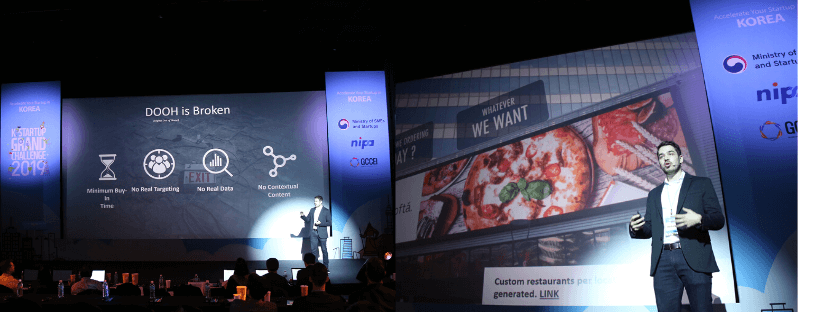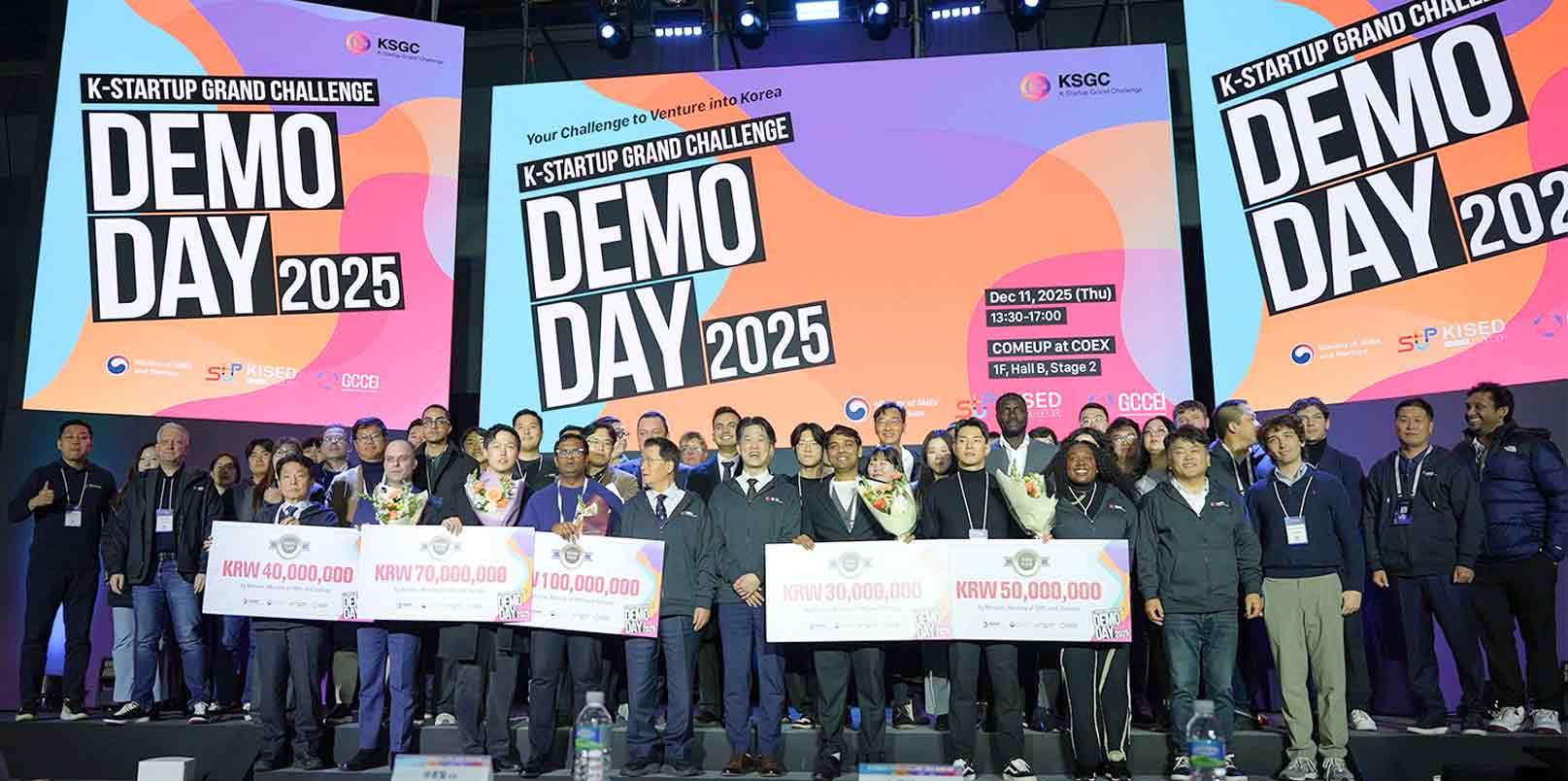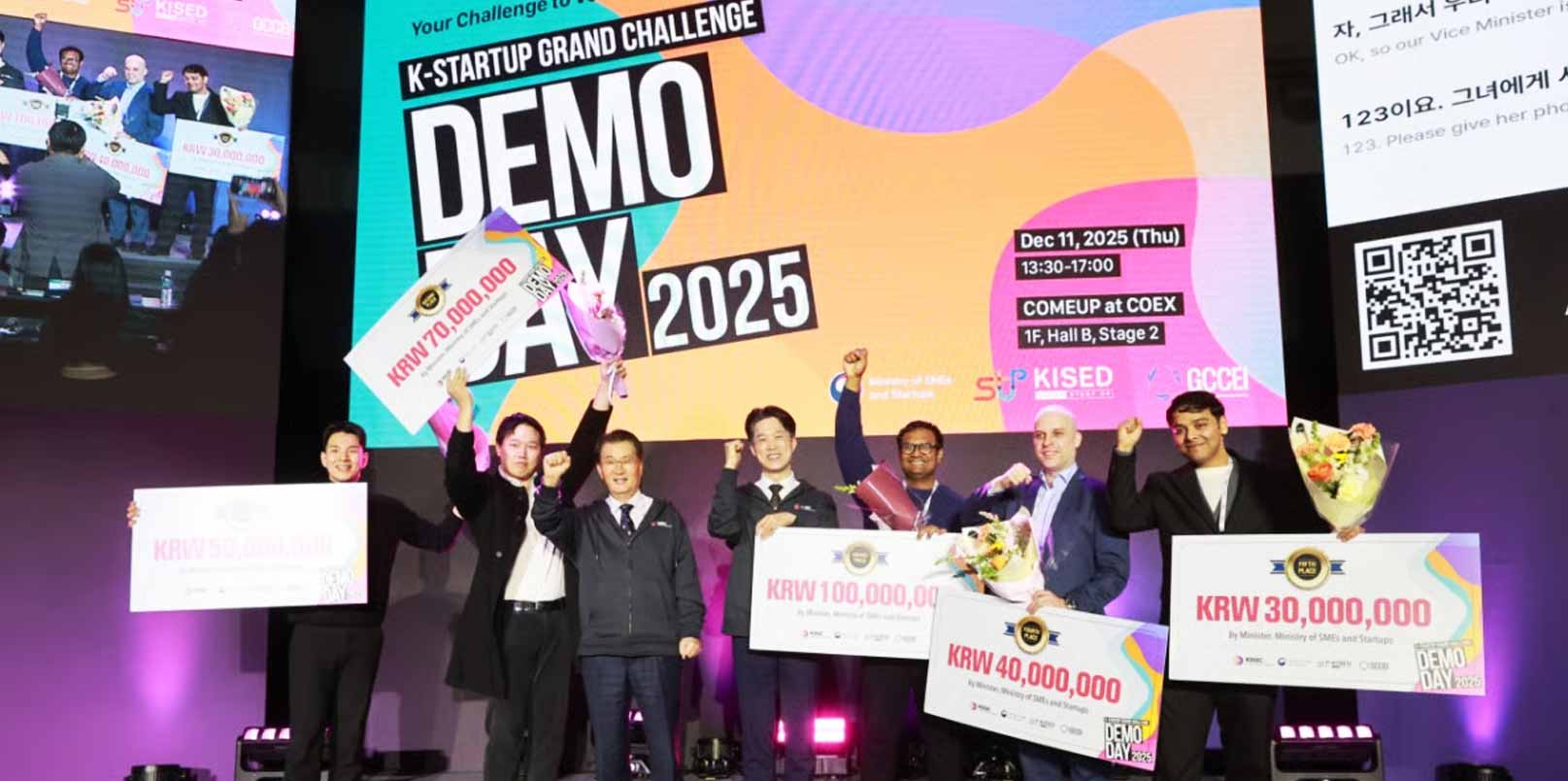Romanian entrepreneur Matei Psatta has been living in South Korea and learning the ‘nunchi’ way of doing business since August 2019. His ad-tech startup TPS Engage was part of the K-Startup Grand Challenge program last year.
TPS Engage works for outdoor digital signage advertisements and has been working across 25 countries. It has offices in Dubai, Bucharest, New York, and now Seoul as well. Matei is one of the co-founders of the startup and is managing the Asian business from Seoul.
He shares his experience as an expat in South Korea during COVID-19 times, doing business in the country and advise for future enterprises wanting to enter Korean shores.
1. Can you tell us about your background?
I studied media and communication science from Romania, and while I was studying, I started working as an intern in a PR agency. Around 2009 or early 2010, social media began to become the next big thing. My boss at the PR agency put me on to social media work. So that’s how I entered the media business. After a few years, I switched to digital media. Because I was curious about advertising and marketing, I went on to do more in social media content and managing paid ads, performance marketing, etc.
I worked with Leo Burnett for four years as head of Digital Strategy, where I worked with clients like P&G, Samsung, etc to help grow their instagram followers (and other platforms) as well as implementing other marketing methods for their social media platforms. I was in charge of digital marketing for clients. After that, I switched to E-commerce, where I worked for the largest online travel agency in Romania, heading the marketing department. So overall, I have a diverse experience, but my focus has been marketing.
It is in 2014 that I started working on my startup idea on a part-time basis, and TPS Engage was born. But it was only in 2018 that we began to do full-fledged work on the startup when we became part of Techstars, the global accelerator, and moved to Dubai.
2. Why did you decide to expand to South Korea?
In my opinion, Asia overall is an exciting market. In terms of digital signage, digital screens, it is bigger than the US in terms of volume, but in terms of value, it’s cheaper with things like direct deals, discount, etc. So we were very curious to enter the market, but we did not have any connections in Asia. And we knew from past business partners and current business partners that Asia is a challenging market to penetrate, especially for a foreigner.
We knew that there were three available markets for us here, that is Korea, Japan, and China. China is a closed market because of the government, and Japan is more traditional and restrictive to foreigners. We wanted to be in the country, which is more open to innovation that we offer. We realized that South Korea is an excellent market for us. One of our co-founders, who was in the Romanian government, has worked on a lot of projects with the Korean government. He has visited Seoul in the past and is familiar with the country and the Korean way of doing business. Hence, we decided to expand to South Korea.
3. Since when did you arrive in South Korea? And what about the visa?
I arrived in South Korea in August 2019, so I have been here for 8 months. I entered on tourist visa of 90 days-stay and then was converted to a D-10 type visa that is a job-seeker visa for a month or two. The job-seeking visa was necessary for the K-Startup Grand Challenge regulation part. When our startup was selected in the Top-20 for the K-Startup Grand Challenge, I got the D-8-4 visa, which is known as an investor visa. So with help from NIPA and K-Startup Grand Challenge, I got the investor or startup program visa valid for one year. The visa can be extended three times.
4. What are the pros and cons of doing business in South Korea?
From my experience, the one advantage is that if you do manage to stay in South Korea, then it is like a window to global expansion. When you make collaborations with international companies like Hyundai, Samsung, LG, etc., you also get the advantage of extending services to other countries.
On the other hand, the disadvantage is that the business process here is slower compared to the western markets like the US. If in the US, if you have a solid business proposition, you can do business without forming any real connections with domestic companies. But here in Korea, there is a lot of due diligence when it comes to making business decisions.
5. Can you share how culturally different it is working in Korea as against Europe?
In Romania or most of Europe, we have a straightforward culture. Of course, we respect other people, but we are very direct in our relationships. We will honestly say what we want to even to the elders. It doesn’t mean we will be disrespectful. In Europe, age is not a significant matter, so you will find young people having elder friends and vice versa. But in Korea, it is quite different. Here age is important even when we do business and so you prefer to do business with people your age. I am trying to understand the ‘nunchi’ way of life here.

6. According to you, what are the challenges for any global startup trying to do business in South Korea?
In South Korea, it is about understanding the problem, accepting it, and then finding a solution. For eg, if you can’t do the job, hire someone to do it. This is different than the American style, where they have the belief that they know better. That is the reason a lot of American businesses fail. In South Korea, Uber had to shut its shop, because they came very strong with a ‘don’t care’ attitude. That doesn’t work even if you have lots of money and especially if you are a startup.
7. Are the business prospects bright for outsiders like you in South Korea?
I have observed that once you go through the stages of validation and relationship building, business development goes fast. So it is about ‘getting out of the bed’ here that is difficult, but once you start, it is extremely fast forward. So the business starting process is slower, but post the start, it is not difficult.
8. What is your opinion about the future economy in South Korea?
Because of Coronavirus, it is impossible to say anything about any economy. But I think in Korea, there are chances of attracting more foreign investment. I am not too familiar with the local economy to make any actual prediction, but what I am seeing and hearing from experiences from Europeans who moved here in the early 2000 or late 90s is that Korea is opening up a lot more for foreigners, business specifically. So, for eg, Techstars, which is an American company, opened up its Korean version. So I expect a growth in new money or new investments in the next decade in Korea.
9. As a former K-Grand Challenge Startup lead participant, do you have any advice for the startups?
Although everyone will tell you it’s difficult, it is still doable and possible. It is definitely worth doing business here as long as you are really mindful of the local culture and accept that you have to adapt your style. It is a good thing to adjust the style as it helped us a lot to improve the way we do business. Korea can be a good business market for foreign startups as well.
One thing I have realized when I came to Korea is that though Koreans don’t speak much English, they understand it very well and so it is not difficult to communicate. I am also learning a little bit of Korean as I live here, helping me with ordering food!






